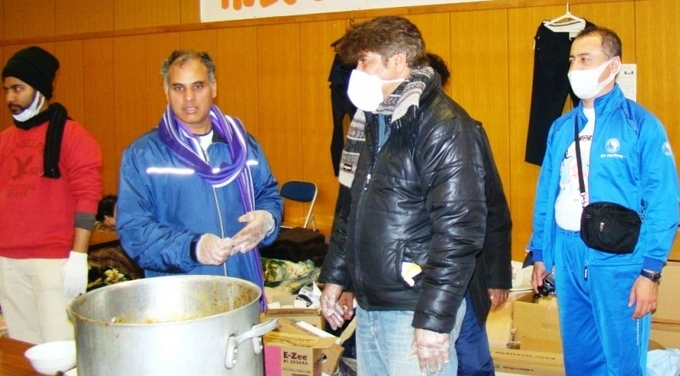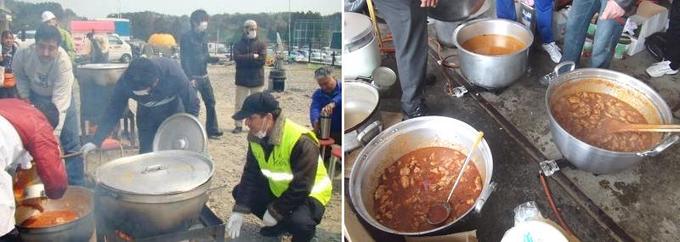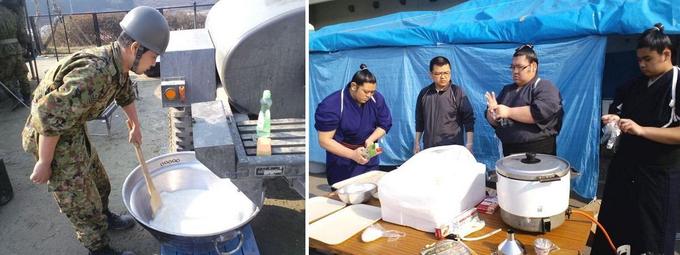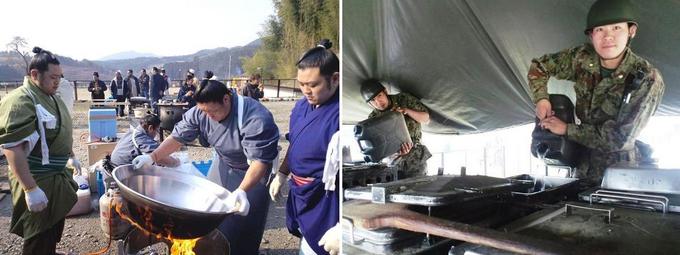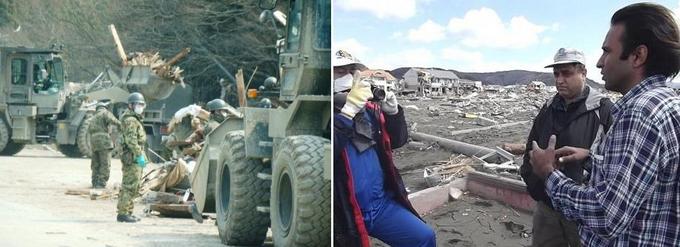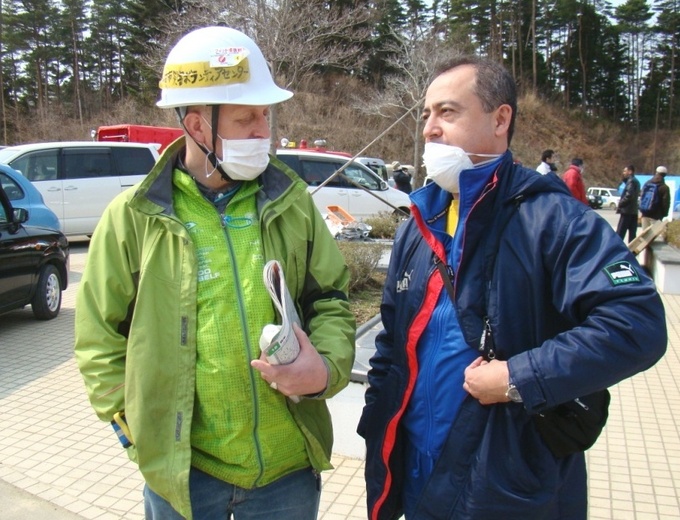Seeing Yaponiya (Japan) Through the Eyes of a Volunteer
What will the international community learn from Japan's experiences with the recent earthquake?
Mukhiddin Tuychiev
Researcher at the Department of Political Science, Tashkent State Institute of Oriental Studies, Uzbekistan
Foreigners living in Japan who experienced the Great East Japan Earthquake have eagerly formed volunteer groups and continue to help those in the prefectures of Fukushima, Miyagi and Iwate. We interviewed one of those foreigners, Mukhiddin Tuychiev of Uzbekistan.
The night of the earthquake, we began gathering donations
――We heard that you formed a group with Muslims living in Japan and went to areas affected by the earthquake to volunteer.
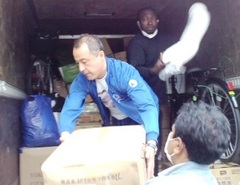 TUYCHIEV: I volunteered because I consider it my duty to do so, and because it's the chivalrous thing to do. I was in Tokyo when the March 11th earthquake hit. The first thing I did immediately after the quake was make sure my family was safe. As with most people, I called people I knew to make sure they were all right. In the evening, when we saw how extensive the damages were, we got together to talk about ways to help the areas that had been affected. Our first plan was to gather donations. We got almost 10 million yen in two weeks. Most of the donations came from Muslims in Japan, especially those who gather at Hira Masjid. Although we got donations from three large foundations, the majority came from personal donations. It might have only been 100 dollars, 200 dollars, or 500 dollars per person, but all that added up to a lot of money. Next, we delivered three to four tons of food a week to the affected areas. At the same time, we sent items that are needed during huge disasters like this one: toys for children in evacuation centers, medical supplies, and so forth. The reason I began this volunteer work has to do with my thesis. My thesis is Japan's role in achieving stability in Afghanistan. In researching for my thesis, I had a chance to interview and talk with immigrants from Pakistan, Arabian countries, Iran, Turkey, Africa, and other areas who live in Japan. Some of them had served in the military in Afghanistan, been in regional conflicts, or had experience with rescue operations during floods or other disasters. They knew exactly what to do in an emergency. So I decided to ask them to help me volunteer. This volunteer group isn't part of any organization. It's just a group of Muslims that happened to come together. It includes Japanese people and British people living in Japan who had converted to Islam.
TUYCHIEV: I volunteered because I consider it my duty to do so, and because it's the chivalrous thing to do. I was in Tokyo when the March 11th earthquake hit. The first thing I did immediately after the quake was make sure my family was safe. As with most people, I called people I knew to make sure they were all right. In the evening, when we saw how extensive the damages were, we got together to talk about ways to help the areas that had been affected. Our first plan was to gather donations. We got almost 10 million yen in two weeks. Most of the donations came from Muslims in Japan, especially those who gather at Hira Masjid. Although we got donations from three large foundations, the majority came from personal donations. It might have only been 100 dollars, 200 dollars, or 500 dollars per person, but all that added up to a lot of money. Next, we delivered three to four tons of food a week to the affected areas. At the same time, we sent items that are needed during huge disasters like this one: toys for children in evacuation centers, medical supplies, and so forth. The reason I began this volunteer work has to do with my thesis. My thesis is Japan's role in achieving stability in Afghanistan. In researching for my thesis, I had a chance to interview and talk with immigrants from Pakistan, Arabian countries, Iran, Turkey, Africa, and other areas who live in Japan. Some of them had served in the military in Afghanistan, been in regional conflicts, or had experience with rescue operations during floods or other disasters. They knew exactly what to do in an emergency. So I decided to ask them to help me volunteer. This volunteer group isn't part of any organization. It's just a group of Muslims that happened to come together. It includes Japanese people and British people living in Japan who had converted to Islam.
――What kinds of things did you do in the earthquake-stricken areas?
TUYCHIEV: We didn't contact any Volunteer Centers. We went straight in and talked directly to the city halls in the affected areas, then went to help. Our first volunteer group went in the day after the earthquake to find out which areas needed the most help. Two weeks later, we sent another group in to Soma City and Minamisoma City, which is about 20 to 45 kilometers away from the Fukushima Daiichi Nuclear Power Plant. Our next group of volunteers went to Sendai City, Minamisanriku Town, and Ishinomaki City in Miyagi Prefecture, and then we sent another group to Kesennuma City and other bay areas in Iwate Prefecture. In Kesennuma, a single school was left standing on a hill. The port beneath it was completely destroyed. It was very cold and humid near the ocean, and we knew that, unlike those in evacuation centers, people who had stayed in their homes were not able to use their heaters. So we thought it would be nice if we could offer a warm, spicy meal with the necessary calories, and decided to make curry and naan. We made several types of curry using mutton, beef, chicken and beans, and cooked it in three large 40 to 60 liter pots.
At first, we only cooked once a week with 10 to 15 people. By April, we were cooking two or three times a week because, as word spread, more and more people wanted to join us. They divided themselves into those who could drive, those who could cook, those who were doctors, and so on. Then we started getting young people who were more active, and now we've asked them to be the main volunteers, while I just help once in a while.
We had a rivalry with sumo wrestlers and former baseball players in the evacuation centers
――You must have been very welcome in the areas stricken by the earthquake. Are there any interesting stories you can tell us?
TUYCHIEV: The earthquake victims asked us a lot of questions, like where we came from. However, we only spent two to three hours in one place handing out 200 to 500 servings of curry, then we had to move on. So unfortunately, we didn't have enough time to talk to everyone. It was hard at first. I don't think they understood that we foreigners had come as volunteers. We were volunteering because it gave us great joy to help people and do good deeds, but it seemed they thought it a bit suspicious that we had come from so far away to help. Some of our volunteers could speak Japanese fluently, but the victims didn't actively try to talk to us, perhaps because they were shy. We're a group, but we don't represent a company or an organization. We didn't advertise using cars and bulletin boards or wave flags around, so it may have been hard to realize why we were there. Some people didn't seem to understand that we were handing out food for free and asked us how much we charged. We stood at gas stations and on the sides of roads that had been newly fixed and worked hard to let people know we were there to help as volunteers.
When we first started, it was cold, windy, and there were times when we had rain or even snow. Once we were there for a day, though, word spread that we were volunteering and many people came to eat our food. In other places, members of the Japanese self-defense forces helped us and explained that we were volunteers. They were handing out soup and rice and we had our curry, so there were times when we decided to exchange our curry with their rice and help each other out. They had great mobility and many different units, and they helped us hand out food to the earthquake and tsunami victims. At one evacuation center, the self-defense forces had set up a temporary bath, and they arranged for us to hand out food right next to it. They were very open and talked to the evacuees in a friendly manner. Even while they had conversations, they would briskly scrub the asphalt with detergent, leaving the entire area clean.
In Minamisanriku Town, we worked together with a group of sumo wrestlers. I'll never forget the sight of the enormous sumo wrestlers wearing yukata (light cotton kimono for summer) in the cold, making onigiri (rice balls) with their huge hands and stirring a pot filled with chanko (a stew-like dish traditionally served to sumo wrestlers) with their huge arms. You'd have to have been there to understand what it was like. There was also a group of what we assumed were former baseball players handing out some other dish in their uniforms. We had a sort of rivalry with the other groups there as to who could cook and hand out the best meal. Of course, we tried our hardest to be the best. In one place we handed out food for an hour or two in the town hall, in elementary school gymnasiums and parking lots. Depending on the area, there were maybe 200 to 500 evacuees. As we were packing up and getting ready to leave, everyone suddenly stood up and started applauding us. Elderly people came up to us and hugged and took pictures with us. They told us how thankful they were. Some people even had tears in their eyes. I'm very grateful that I got the chance to have these experiences.
――I guess sharing such emotions with others is a good reason for getting involved in volunteer work.
TUYCHIEV: It's very hard for me to explain why I decided to start volunteering. I can only say that it's a feeling that wells up from inside me. No matter how difficult the situation is, I think it's important to think about the country you're in. So maybe I feel obligated to help Japan because that's where I live now. That might be something that comes from within me, or something like a light that comes from above. That is to say, I'm a very religious person. To me, though, it's more of a matter of principle rather than anything religious. Like many Japanese, the people of Uzbekistan value tradition more and more as they get older. I also think of myself as a person who values tradition. In our society, we've traditionally been taught to do good deeds for our communities, even if it's only once a day. We're also taught that once we start something nice, we must finish doing it. That's a family tradition as well as a social tradition. It's also because of the environment I grew up in.
I was born in a college town neighboring the capital city of Tashkent. I studied at the schools and the Oriental Institute there, and everyone around me--including my family and friends--lived their lives by following Oriental traditions. So when it came to volunteer work, it was about doing good things for people and not about religious beliefs. Currently I work as a researcher, but based on my experiences, I think I am physically and mentally prepared for any sort of hardship. In the spring of 1986, after the accident at the Chernobyl power plant, I was sent to an army officer training school to undergo specialized training in the use of portable generators. From 1991 to 1993, I was a soldier in the Caucus region during the South Ossetia War. I was also in the military from 1987 to 1988, when the Sumgait pogrom happened near Baku in a dispute involving Azerbaijan and Armenia. I then served as a diplomat to Turkey from 1998 to 2000 and experienced the 1999 Izmit earthquake in the northwestern part of the country. Now, I think it's fate that these disasters and conflicts happen in regions related to my thesis. In other words, there are times when you have to be adventurous. This is something that, to some extent, I have in common with the foreigners who work with me as volunteers. Also, because I felt at one with the Japanese people, I couldn't put my mind at ease, and couldn't concentrate on sleeping or eating. I was constantly thinking about the fact that many people in the earthquake-stricken areas were suffering. To be honest, I don't really want to talk about my volunteer work. If you were in my position, would you want to boast about your volunteer work? I think it's best to show your feelings toward the areas affected by the earthquake through your actions, not by bragging about it. It's times like these that I think of Professor Reiko Sugano, who has been in Uzbekistan since 1991 and works hard as a volunteer to improve Uzbekistan-Japan relations. She's not very well known, but it can be said that she's the reason Uzbekistan and Japan have had good relations. I hope my words will be a tribute to her, as she is my mentor in volunteer work.
I was deeply moved by the calm way the Japanese handled things
――Are there earthquakes in Uzbekistan? If there are, do people in Uzbekistan feel the same way about earthquakes as the Japanese do?
TUYCHIEV: There was a very big earthquake in 1966, two years before I was born. Buildings in the capital city of Tashkent were completely destroyed. Architects who were earthquake specialists came from all over the Soviet Union and began to reconstruct the city. Thanks to them, the capital city was completely rebuilt. Streets and squares in Tashkent were named after the architects from Russia, Belarus, Ukraine, and the Caucus region in honor of these architects. Our parents' generation also treasured helping others, much like the Japanese samurai. Thankfully, the house I grew up in wasn't destroyed. From the '70s to the '90s there were also a number of large earthquakes in many cities of Uzbekistan. For example, the earthquakes in the city of Gazli near Bukhara and in Nazarbek near Tashkent caused devastating damages. Uzbekistan doesn't have as many earthquakes as Japan, but people still know what an earthquake is. It's my wish that people in Japan will learn about the history of the founding of Uzbekistan and its culture because there are many similarities to Japan. In the case of a disaster like this one, it's customary for regional leaders to meet and decide what the plan of action is. The meetings originally were to decide things like how to share the water and how to use the land. From an economic perspective, Japan is a major economic power compared to Uzbekistan. During a crisis, though, the Japanese people come together to make decisions. They don't wait for the country's leaders to tell them what to do. They talk amongst themselves and work toward rebuilding their cities. That's very similar to what the citizens of Uzbekistan did in the '70s and '80s during their disasters. On the other hand, countries in central Asia were made up of nomads, and Uzbekistan has more than 120 ethnic groups. Originally, these ethnic groups moved together and ruled over separate lands. Then, Uzbekistan was ruled for 2000 long years by many empires, including the Greeks, the Persians, the Arabs, the Mongols, and the Russians. On this point, it's greatly different from Japan, even though they're both Asian countries. The same is true of what I mentioned earlier about being "deeply religious," but since before the spread of Islam throughout central Asia in the 8th to 9th centuries, the tradition of cherishing and helping your neighbors has always been a part of our history. In this way, Uzbekistan is similar to Japan. I think other people can feel when you're trying to do something good, and the feeling becomes mutual, grows, and becomes a part of that country's culture.
――The people of Uzbekistan have many similarities with the Japanese.
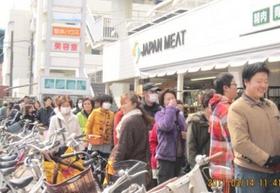 TUYCHIEV: I think the Japanese people are very patient. They've battled natural disasters for more than 1,000 years. They know what they should do--their roles and their jobs. I was impressed that despite the confusion after the earthquake, when information was scarce, people remained calm and acted in a very organized manner. They were acting confidently and according to plans. Fire and earthquake drills are a normal part of life for the Japanese. My wife visited a school to observe the drills, and told me that the students all go through what to do in an earthquake and walk to the evacuation centers. So even if they end up getting separated, the students all know where to evacuate to. I think this is brilliant. I was also surprised that most of the buildings in the Greater Tokyo Area were still standing even after an earthquake of that magnitude. I was amazed by the engineering. The damage caused by the tsunami in Soma, Fukushima Prefecture was immense, but it looked like the damage caused by the earthquake itself wasn't so serious. I was amazed. Although this is my personal opinion, I think the people of the Tohoku region have a different culture from people in the Greater Tokyo Area. I had this image that the people of the Tohoku region were simple folk. They reminded me of people in my home country, and I found it somewhat easier to communicate with them. However, they had gone through a hard situation, and I always had the sense that they had a lot they wanted to say but couldn't. I remember an old man in an evacuation center looking fondly at his old photographs. Maybe he was reminiscing of the past, when he had had a beautiful house, a nice car--everything he had needed to live a comfortable town life. Then, he had lost all of it in an instant. Worse, he had probably lost people he loved. Even so, I never saw them shed tears. The only tears I saw were those I saw when we were about to leave after handing out food, which I mentioned earlier. Some of our volunteers were overwhelmed with a sense of accomplishment and cried, but we didn't see the earthquake victims crying. Japanese people are very tough. Even in times like these, they don't cry. They just sleep for four or five hours, wake up, and go about doing the things they have to do.
TUYCHIEV: I think the Japanese people are very patient. They've battled natural disasters for more than 1,000 years. They know what they should do--their roles and their jobs. I was impressed that despite the confusion after the earthquake, when information was scarce, people remained calm and acted in a very organized manner. They were acting confidently and according to plans. Fire and earthquake drills are a normal part of life for the Japanese. My wife visited a school to observe the drills, and told me that the students all go through what to do in an earthquake and walk to the evacuation centers. So even if they end up getting separated, the students all know where to evacuate to. I think this is brilliant. I was also surprised that most of the buildings in the Greater Tokyo Area were still standing even after an earthquake of that magnitude. I was amazed by the engineering. The damage caused by the tsunami in Soma, Fukushima Prefecture was immense, but it looked like the damage caused by the earthquake itself wasn't so serious. I was amazed. Although this is my personal opinion, I think the people of the Tohoku region have a different culture from people in the Greater Tokyo Area. I had this image that the people of the Tohoku region were simple folk. They reminded me of people in my home country, and I found it somewhat easier to communicate with them. However, they had gone through a hard situation, and I always had the sense that they had a lot they wanted to say but couldn't. I remember an old man in an evacuation center looking fondly at his old photographs. Maybe he was reminiscing of the past, when he had had a beautiful house, a nice car--everything he had needed to live a comfortable town life. Then, he had lost all of it in an instant. Worse, he had probably lost people he loved. Even so, I never saw them shed tears. The only tears I saw were those I saw when we were about to leave after handing out food, which I mentioned earlier. Some of our volunteers were overwhelmed with a sense of accomplishment and cried, but we didn't see the earthquake victims crying. Japanese people are very tough. Even in times like these, they don't cry. They just sleep for four or five hours, wake up, and go about doing the things they have to do.
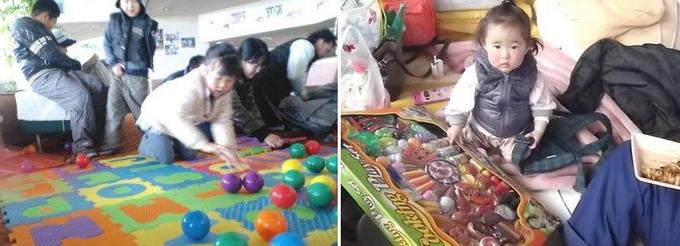
Kids play with toys donated by Mr. Mukhiddin's volunteer group
Japan will definitely overcome this difficulty and use it as an opportunity to develop
――Did you watch the reports by the foreign media that showed the aftermath of the earthquake and how calm the Japanese people were?
TUYCHIEV: One thing I would like to say about the foreign media is that I think aesthetics is an important part of journalism. Some people think that they should write about what they've seen, but to do that you must be objective, and you cannot write about things that haven't been confirmed. Immediately after the earthquake, the foreign media aired footage they had gotten from another source and didn't air eyewitness reports or statements by specialists. Since I specialize in international relations, I look at news from the media of areas like the Asia-Pacific region, Russia, Europe and the U.S. It seemed to me that all of them were reporting only on what they were interested in politically. For example, on the third day after the quake one broadcast team went into Kesennuma, where one of our volunteer groups had gone. By this time, there were areas where the roads had already been fixed, but that wasn't reported overseas. Instead, they only reported on the damages. The Japanese people are very resolute and probably don't like to stand out. They didn't tell the world of those repairs, so most of the media ended up reporting that the entire Japanese country had been devastated. The Japan Foundation told fellows like me to look at the websites of the Prime Minister's Office, the Ministry of Foreign Affairs of Japan, and the Nuclear and Industrial Safety Agency to check what was going. There was a lot of emergency information on both the quake and the accident at the nuclear power plant on those sites in a number of languages, and the pages were constantly being updated. I relayed that information to my relatives in Uzbekistan and my friends in Japan, and therefore was able to share accurate information.
――How should Japan deal with countries overseas? How should they send out information?
TUYCHIEV: I don't think Japan needs to change its relations with other countries. While it's true that there was a crisis, it's the international community that has to learn from Japan. Japan is where it needs to be now, and the focus should be on how the international community changes by observing the Japanese example. How did the Japanese act after such a devastating disaster and why were they able to act so calmly? With about 200 conflicts currently going on in the world, I think it's important that the countries involved in such conflicts and the global society learn from Japan. The same can be said of the accident at the Fukushima Daiichi Nuclear Power Plant. The actions of countries which are leaders in nuclear power, such as France, the U.S. and China, will change the future of the world drastically. There are many different opinions on nuclear power. Some people question whether nuclear power plants, which threaten the lives of people, are really necessary. Others think that we can't deny our need to have peaceful nuclear power. Japan is a country whose economy relies heavily on trade, so just as Japan needs countries to export to, the countries of the world need Japan to import from. I don't think it's necessarily true that the world will look at Japan with a critical eye. It's possible that the cost of rebuilding, which includes the cost of ensuring nuclear safety, will be astronomical. However, if you divide that by a population of 120 million, it's not that bad. A tax increase will probably be necessary, but if you consider the fact that Japan got back on its feet after the Great Hanshin earthquake, it will definitely overcome this. Currently, we're seeing many instances of private funds being used for rebuilding. I think this will remove the obstacles that caused economic stagnation for the past 20 years. It will also pave the way for technological innovations and provide an opportunity for the Japanese economy to develop. What happened is a terrible tragedy, but I believe Japan will use it as a springboard to go even higher.
Lastly, I would like to thank my friends and colleagues from Russia and various Asian countries who are living in Japan for their support of our activities. I would also like to say thank you to people I met through personal connections in the Uzbekistan embassy in Japan and the workers at Uzbekistan Airways for carrying out their duties even though it was a trying situation, and to the friends of my family.
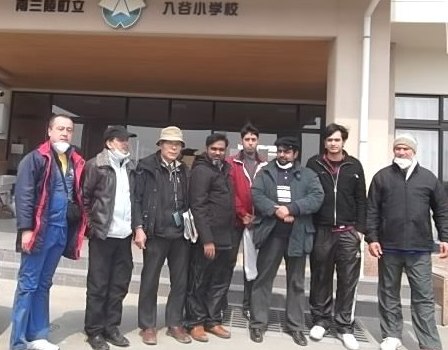
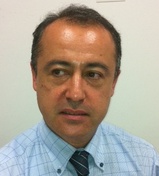 Mukhiddin Tuychiev
Mukhiddin Tuychiev
Researcher at the Department of Political Science, Tashkent State Institute of Oriental Studies, Uzbekistan
Tuychiev came to Japan in 2010 as a Japanese Studies Fellow. He is researching the history of diplomatic relations between Russia and Japan at Hosei University. He experienced the Great East Japan Earthquake in Tokyo on March 11, 2011 and formed a volunteer group with those interested to help earthquake-stricken areas in Fukushima Prefecture and Miyagi Prefecture on weekends.
Related Events
Back Issues
- 2022.11. 1 Inner Diversity<3> <…
- 2022.9. 5 Report on the India-…
- 2022.6.24 The 48th Japan Found…
- 2022.6. 7 Beyond Disasters - …
- 2021.3.10 Crossing Borders, En…
- 2020.7.17 A Millennium of Japa…
- 2020.3.23 A Historian Interpre…
- 2019.11.19 Dialogue Driven by S…
- 2019.10. 2 The mediators who bu…
- 2019.6.28 A Look Back at J…


